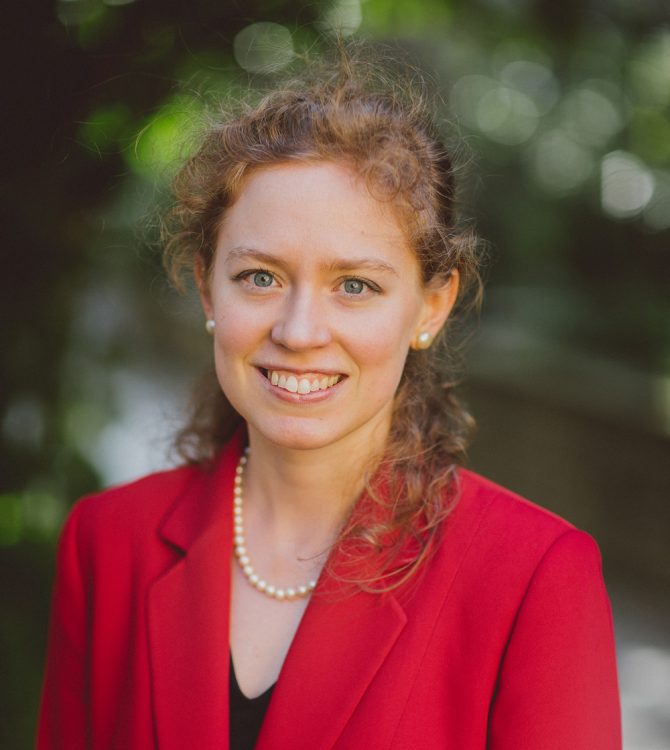Emily
Fellow by Special Election

I’ve been working at Teddy Hall since 2015, when I came to the College as the John Cowdrey Junior Research Fellow in History. I stayed on as a Fellow by Special Election, and am currently working on a collaborative research project on medieval historical writing in Wales and England. Before coming to Teddy Hall, I taught medieval history at UCL, and pursued research at the University of Mainz in Germany as a Humboldt Fellow. I’m originally from the U.S., and moved to England after graduating from university to do my postgraduate degrees in medieval history here at Oxford.
In my research, I am interested in how and why medieval people told stories about their own history. I read and compare medieval historical writing—which includes chronicles, poems, letters, and even history reference works—and try to understand the ways in which individual writers interpreted the past in different ways. In my teaching, I’m always interested in exploring topics and questions with my students that explore how men and women thought, interacted, and lived. I have long had an interested in the philosophy and intellectual history of leadership. I have an article coming out this year (2022) in the English Historical Review about attitudes towards Æthelflaed, ruler of Mercia (d. 918), between 900 and 1150. It’s often thought that, because she was a woman, later writers thought of her only relation to other ruling women—like Empress Matilda, for example, who claimed the English throne in 1136. As it turns out, her challenges, comparing her to everyone from Alexander the Great, to Caesar, to her fellow (male) Anglo-Saxon rulers. One writer even praised her as king-queen, embracing the idea of non-binary gender in a ruler.
The first poster I saw at Teddy Hall, on the day of my interview, advertised it above all as a ‘Friendly’ place. My favourite memories from the Hall are all about the people. I remember a conversation over tea in the SCR with a law fellow: it started out about modern financial law and ended with the twelfth-century book, the Dialogue of the Exchequer. At a welcome dinner for tutors and undergraduates, the historians and Earth scientists were seated together. By the end of the dinner, one of the historians was tempted to switch to Earth science (because the course involved trips to see the geology of sites of ancient battles in Sicily) and one of the Earth scientists wanted to switch to history (because you get to fill places in with stories of the human past). I enjoy learning from people in different fields, and the serendipity that emerges when ideas make surprising connections.
What do you think when you hear ‘Women of the Hall’? What does the Hall mean to you?
The Hall is a wonderful social and intellectual community. I have found it a welcoming place, and without any expectation that you should have views in the community ‘as’ a particular type of person. As a human being, a historian, a woman, an educator, and many other things besides, I have found the Hall a ‘flourishing’ place indeed, where people and ideas meet and change. Floreat aula!